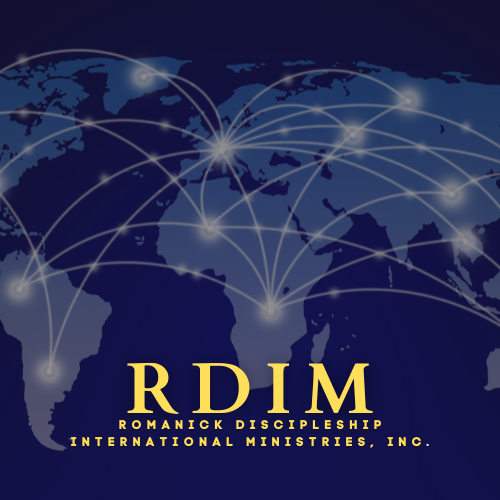Key Biblical Definitions – Used in RDIM Ministry and On This Website
We wish to provide clear definitions to prevent any confusion or misinterpretation – these definitions are bridges to function and understanding.
- Discipleship:
- Discipleship occurs when you train, equip, and release the people you lead or influence. This includes your spouse and children, extended family members, co-workers, friends and neighbors, ministry team – especially those you personally lead into the Kingdom of God!
- Discipleship is about connecting all Believers to the two dominant principles that Jesus gave us: the Great Commandment and the Great Commission.
- Church:
- A group of believers committed to Jesus Christ as Lord and Savior in a regular and ongoing gathering for the purpose of worship (including sacraments), fellowship, discipleship, and evangelism/missions outreach.
- Matthew 18:19-20 – Jesus said: “Again, truly I tell you that if two of you on earth agree about anything they ask for, it will be done for them by My Father in heaven. For where two or three gather in My name, there am I with them.”
- A church is further identified by the observance of the following characteristics:
- Applying the Acts 1:8 model.
- Conducting holistic ministry.
- Practicing the primary New Testament sacraments (water baptism and communion).
- Equipping Believers through the five-fold ministry.
- Notice: a church is NOT a building, programs, or a denomination. The church is people – a body of Believers.
- Church Planting, and Related Terms:
- Church planting is the natural result of dynamic evangelism/missions work and effective disciple-making at a local or regional level.
- Church planting is also a process to initiate a self-sustaining, multiplying movement of churches that plant new churches (congregations of Believers).
- The vision is that each church would become self-supporting, self-governing, and self-propagating, then resolve to plant new churches.
- These new churches can meet in a building, storefront, private home, a business, or “under a tree” – not the traditional model of church-planting in the western world.
- What do you think of when you hear the term “Church Plant”? A group of people (perhaps some distributed from the mother church), an associate pastor, a strip mall suite, and funding for a year or so from the mother church.
- What is a church plant overseas? Young disciples with 1-4 families, meeting wherever they can, generating resources to support themselves. In Western thought, this sounds like a small group under the covering of a larger church congregation!
- Church Planting Movement (CPM) is the continuous, even exponential, movement of churches planting self-governing, self-propagating, and self-sustaining churches within their community, region, and beyond.
- Church Planter is a God-called leader who is gifted, trained, and deployed to initiate a church planting movement in all four levels of evangelism.
- Church planting is the natural result of dynamic evangelism/missions work and effective disciple-making at a local or regional level.
- Mission, Missions, Missionary:
- Mission: God’s redemptive work in building or extending His Kingdom in Jerusalem, Judea, Samaria, and into the Rest of the World (Acts 1:8).
- Missions: The cross-cultural application of the mission of God – NOT a mono-cultural application.
- Missionary: Minister of the Gospel who works cross-culturally – one who enters a different culture to do missions.
- People Group, Unreached People Group (UPG), and Related Terms:
- People Group – A group of individuals who share a common history and heritage as well as ethnic, linguistic, and cultural traits.
- Unreached People Group (UPG) – People group within which there is no viable indigenous church that can disciple and reach its own people, no real access to hear about Jesus.
- Reached People Groups – A people group is considered “reached” if it has a viable, indigenous, reproducing church movement in its midst. This includes strong churches pastored by indigenous leaders, in their own language, actively evangelizing their own people, and planting churches within their community/region.
- Ethne – A group of people who may vary in size or geographic location but are the same ethnically, socially, culturally, and linguistically.
- Nations (Ethne) – People groups which emerged from God’s action in Gen 11:6-9 – “So, the Lord scattered them from there over all the earth, and they stopped building the city. That is why it was called Babel — because there the Lord confused the language of the whole world.”
